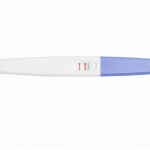The research world has long been trying to figure out whether the protein, carbohydrate, and fat content of a diet matters, or whether it is ‘simply’ all about the number of calories being taken in, that determines the end effect on weight. While a large clinical trial suggested that the composition of the diet doesn’t matter, there may be certain elements of this trial that make it difficult to draw these conclusions.
In the POUNDS LOST trial, originally published in 2009 in the New England Journal of Medicine, over 800 overweight adults were randomly assigned to diets with different proportions of fat, carbs, and protein. At the two year follow up, weight lost was similar in all groups, regardless of the diet composition, leading the authors to conclude that the composition of the diet doesn’t matter, and that it’s all about the calories.
In a follow up to the POUNDS LOST trial, the authors recently published further data suggesting that there was not only no difference in weight between the various diet groups, but no difference in changes in body composition, abdominal fat, or liver fat lost between the groups either.
In an accompanying editorial in the American Journal of Clinical Nutrition, my colleague Arne Astrup and I comment that further analysis of the POUNDS LOST data show that, based on urine excretion of nitrogen, which is a marker of dietary protein intake, there was actually no difference in protein intake between the low and high protein diet groups. In other words, despite being assigned diets with different protein content, the participants ended up eating the same amount of protein after all. As such, it is not actually possible to assess the effect of protein content on weight loss success based on this study.
The heart of the problem is that it is very difficult for study participants to adhere to a hard and fast dietary regimen for the duration of a study. Although people in this study were asked to eat different amounts of protein, they ended up eating much the same. Much better is to design dietary trials which point participants towards consumption of certain types of foods, without a fixed caloric intake or diet composition assigned. That way, we can study how different types of foods affect weight via their natural effects on hunger and satiety. This is a much more practical way to address the obesity epidemic from a research perspective, as it more accurately represents eating patterns in real life!
Follow me on Twitter for daily tips! @drsuepedersen












